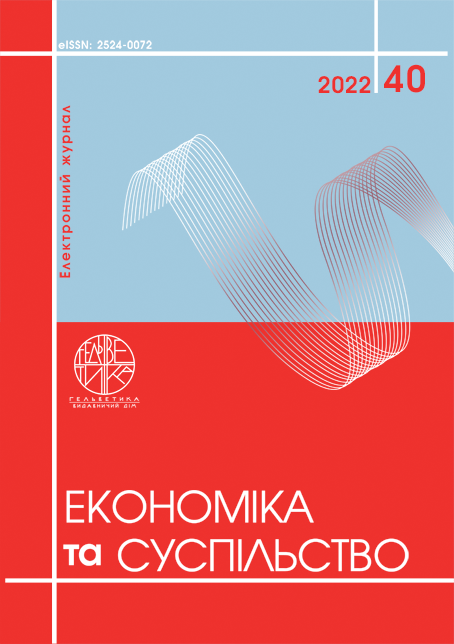MODERN PERCEPTION OF "PRINCIPLES OF SCIENTIFIC MANAGEMENT" BY F.V. TAYLOR
Abstract
The article is devoted to the question of the assertion of management as a science. Management is a very complex process, but most of its aspects can be presented in the form of tasks facing the organization, and at the same time, these tasks constitute its main essence. Given the more dynamic and volatile business world, the traditional mechanisms of "scientific management" seem not only less useful, but also clearly counterproductive. And the science itself turns out to be less and less relevant for the practical concerns of managers. Attention is drawn to the fact that in addition to the functions that managers of an organization must perform, there are also skills that every modern manager must have. The state of management as a science is analyzed from the point of view of the American founder of the scientific organization of labor and management, F.V. Taylor. The experience of F.V. was studied. Taylor on the organization of management, as management and science. It is outlined that the science itself is less relevant for the practical concerns of managers at the modern stage of management. Taylor's solution was to "substitute science for the individual judgment of the worker". Managers had to separate the planning of work from its actual execution and leave to themselves the choice of methods of performing this or that task. By analyzing all stages of the workflow and creating standardized procedures for each step, managers can determine the "best method" for performing a task that ensures maximum efficiency. Taylor's statement that managers are too focused on the results of work, and not on the processes by which this work is performed, is one of the results of his scientific opinion, regarding which scientists today have mixed opinions. Organization of work, motivation of employees and tasks of management are the main tasks of the management of any enterprise according to Taylor, they remain inherent even in modern conditions. Academic leaders today must be researchers who study their own organizations. And they must be designers who create the learning processes that make self-organization possible, the processes necessary to work effectively in a world characterized by constant innovation and change.
References
Witzel M. Managament: The Basics, Routledge, NY, 2005 pp. 3–6.
Seven management skills needed in 2025. URL: http://www.management.com.ua/tend/tend990.html
Тейлор Ф.В. Принципи наукового менеджменту. URL: https://infotour.in.ua/tailor.htm
Скібіцька Л.І., Скібіцький О.М. Менеджмент : навчальний посібник. Київ : Центр учбової літератури, 2007. С. 416.
Баєва О.В., Новальська Н.І., Згалат-Лозинська Л.О. Основи менеджменту: практикум : навч. посібник. Київ : Центр учбової літератури, 2007. С. 524. URL: https://www.twirpx.com/file/689801/
Witzel M. Managament: The Basics, Routledge, NY, 2005 pp. 3–6.
Seven management skills needed in 2025. Available at: http://www.management.com.ua/tend/tend990.html
Tejlor F. V. Pryncypy naukovogho menedzhmentu [Principles of scientific management]. Available at: https://infotour.in.ua/tailor.htm
Skibicjka L.I., Skibicjkyj O.M. (2007) Menedzhment: navchaljnyj posibnyk [Management: textbook]. Kyiv: Centr uchbovoji literatury, Р. 416.
Baeva O.V., Novalska N.I., Zgalat-Lozynska L.O. (2007) Osnovy menedzhmentu: praktykum: navch. posibnyk [Fundamentals of management: workshop: textbook]. Kyiv: Center for Educational Literature. Available at: https://www.twirpx.com/file/689801/


